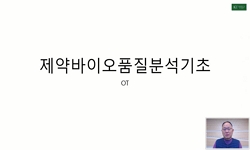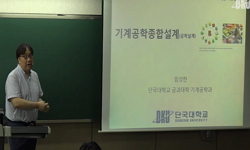21세기 복합적이고 예측 불가능한 현대사회의 변화를 주도하기 위한 교육적 해결책으로 최근 영재교육에서는 융합형 영재교육에 대한 당위성을 언급하고 있다. 융합형 영재교육의 필요성은...
http://chineseinput.net/에서 pinyin(병음)방식으로 중국어를 변환할 수 있습니다.
변환된 중국어를 복사하여 사용하시면 됩니다.
- 中文 을 입력하시려면 zhongwen을 입력하시고 space를누르시면됩니다.
- 北京 을 입력하시려면 beijing을 입력하시고 space를 누르시면 됩니다.

융합형 영재교육을 위한 핵심 역량 모델의 타당화 = Validation of Core Competencies Model for the Convergent Gifted Education
한글로보기https://www.riss.kr/link?id=A104242010
- 저자
- 발행기관
- 학술지명
- 권호사항
-
발행연도
2017
-
작성언어
-
- 주제어
-
KDC
370
-
등재정보
KCI등재
-
자료형태
학술저널
- 발행기관 URL
-
수록면
107-134(28쪽)
-
KCI 피인용횟수
2
- DOI식별코드
- 제공처
-
0
상세조회 -
0
다운로드
부가정보
국문 초록 (Abstract)
21세기 복합적이고 예측 불가능한 현대사회의 변화를 주도하기 위한 교육적 해결책으로 최근 영재교육에서는 융합형 영재교육에 대한 당위성을 언급하고 있다. 융합형 영재교육의 필요성은 모두 인정하지만 이를 실현할 역량 모델의 개발과 그 타당성 확인하는 연구는 찾기 어려운 실정이다. 이에 우리나라 융합교육전문가들의 설문조사를 기반으로 개발된 융합형 영재 역량 모델(양희선, 강성주, 2016)이 융합형 핵심 역량교육의 모델로서 수집된 자료에 잘 부합하는지 검증하였다. 126명의 전문가 설문조사를 활용하여 확인적 요인분석하고 융합형 영재 핵심 역량 모델의 구인타당도를 확인하였다. 모델의 구인타당도를 확인해본 결과, 모델적합도는 우수한편이며 ‘의사소통’, ‘팀워크’, ‘문제해결’, ‘정보’, ‘논리분석’, ‘창의성’, ‘자기개발’, ‘책임감 및 윤리의식’으로 구성된 8개 잠재변수와 이를 측정하는 25개의 관측변수들의 일치성 높았고 독립된잠재변수간의 차이는 크지 않은 것으로 나타났다. 본 핵심 역량 모델에 대한 타당화 연구는 융합형 영재교육의 핵심 역량 추출 및 타당도 확인을 위한 기초연구자료로 추후 연구의 방법적 토대 및 영재의 융합형 핵심 역량을 활용한 연구의 방향 제시 역할을 할 것이다.
다국어 초록 (Multilingual Abstract)
In the 21st century, as an educational solution to lead the complex and unpredictable changes in the world, recently the gifted education refers to the need for convergent-gifted education. Although it recognizes the necessity of convergent-gifted ed...
In the 21st century, as an educational solution to lead the complex and unpredictable changes in the world, recently the gifted education refers to the need for convergent-gifted education. Although it recognizes the necessity of
convergent-gifted education for the gifted, it is difficult to find a study to develop the competency model to realize it and its validity. Therefore, we verified whether the convergent gifted competence model (Yang Hee Sun, Kang Sung - ju, 2016) developed based on the questionnaire survey of convergence education specialists in Korea fit well with the data collected as a model of convergent core competency education. Confirmatory factor analysis of the questionnaire survey of 126 educational experts was conducted and the applicant validity of the convergent-gifted core competence model was confirmed. As a result of checking the construct validity of the model, the model fit was excellent and consistency of 25 observational variables and 8 latent variables, composed of communication ,
teamwork , problem solving , information , logic analysis , creativity , self development , responsibility and ethical consciousness , were high. But the difference between the independent potential variables showed that is not strong enough to distinguish. The validity study of this core competence model is the basic research data for core competency extraction and validation of convergent gifted education. This will also serve as a methodological basis for future research and a direction for research that utilizes the core competencies of the gifted.
목차 (Table of Contents)
- Ⅰ. 서론
- Ⅱ. 이론적 배경
- III. 연구방법
- Ⅳ. 연구 결과
- Ⅴ. 논의
- Ⅰ. 서론
- Ⅱ. 이론적 배경
- III. 연구방법
- Ⅳ. 연구 결과
- Ⅴ. 논의
참고문헌 (Reference)
1 Spencer, L. M., "핵심 역량 모델의개발과 활용" PSI컨설팅 2007
2 이미숙, "한국판 CES-D 척도(the Center for Epidemiologic Studies-Depression Scale)의 요인구조분석에 대한 재검토" 한국보건사회학회 12 : 43-62, 2002
3 송인섭, "한국 영재교육의 방향 모색 -융합형 창의 인재 육성-" 한국영재교육학회 10 (10): 75-95, 2011
4 교육부, "초․ 중등학교 교육과정 총론"
5 이재분, "초 중등 영재학급 및 영재교육원의융합인재교육(STEAM)적용방안 연구" 한국교육개발원 2012
6 성은현, "창의적 인재 양성을 위한 교육의 방향" 한국영재교육학회 14 (14): 31-47, 2015
7 김왕동, "창의적 융합인재에 관한 개념 틀 정립: 과학기술과 예술 융합 관점" 한국영재교육학회 11 (11): 97-119, 2012
8 이찬, "차세대 영재기업인 역량모델개발" 한국농·산업교육학회 42 (42): 155-176, 2010
9 교육부, "제 3 차 영재교육진흥종합계획" 교육부 2013
10 김영춘, "전략적 리더십 구성요인 탐색 - 군 고급제대를 중심으로 -" 한국인적자원관리학회 18 (18): 219-241, 2011
1 Spencer, L. M., "핵심 역량 모델의개발과 활용" PSI컨설팅 2007
2 이미숙, "한국판 CES-D 척도(the Center for Epidemiologic Studies-Depression Scale)의 요인구조분석에 대한 재검토" 한국보건사회학회 12 : 43-62, 2002
3 송인섭, "한국 영재교육의 방향 모색 -융합형 창의 인재 육성-" 한국영재교육학회 10 (10): 75-95, 2011
4 교육부, "초․ 중등학교 교육과정 총론"
5 이재분, "초 중등 영재학급 및 영재교육원의융합인재교육(STEAM)적용방안 연구" 한국교육개발원 2012
6 성은현, "창의적 인재 양성을 위한 교육의 방향" 한국영재교육학회 14 (14): 31-47, 2015
7 김왕동, "창의적 융합인재에 관한 개념 틀 정립: 과학기술과 예술 융합 관점" 한국영재교육학회 11 (11): 97-119, 2012
8 이찬, "차세대 영재기업인 역량모델개발" 한국농·산업교육학회 42 (42): 155-176, 2010
9 교육부, "제 3 차 영재교육진흥종합계획" 교육부 2013
10 김영춘, "전략적 리더십 구성요인 탐색 - 군 고급제대를 중심으로 -" 한국인적자원관리학회 18 (18): 219-241, 2011
11 양희선, "융합형 영재의 핵심 역량 모델 개발 연구" 한국영재교육학회 15 (15): 93-119, 2016
12 최태호, "융합형 영재교육의 가능성 모색" 한국영재학회 21 (21): 683-702, 2011
13 박기문, "융합인재교육에서의 학습성과 측정을 위한 핵심역량 구성요인 개발" 한국기술교육학회 14 (14): 234-257, 2014
14 백윤수, "융합인재교육(STEAM)실행방향 정립을 위한 기초연구" 과학창의재단 2012
15 맹희주, "융합영재교육의 발전 과제와 연구 방향에 대한 논의" 한국영재학회 23 (23): 981-1001, 2013
16 김주아, "융합교육과정 개발에 대한 숙의 : 과학예술영재학교 교육과정 개발 과정을 중심으로" 한국교육과정학회 32 (32): 47-75, 2014
17 권난주, "융합 및 통합 과학교육 관련 국내 연구 동향 분석" 한국과학교육학회 32 (32): 265-278, 2012
18 우종필, "우종필교수의 구조방정식모델 개념과 이해" 한나래 2016
19 이영준, "요인분석의 이해" 석정 1991
20 이경진, "영재를 위한 통합교육과정 개발의 방향: Drake 모형의 적용 가능성 탐색" 한국영재학회 24 (24): 217-241, 2014
21 태진미, "영재를 위한 융합교육(STEAM) 자료 개발 및 적용" 한국영재학회 24 (24): 703-728, 2014
22 태진미, "영재를 위한 STEAM교육의 효율적 적용 방안 탐색을 위한 델파이 조사" 한국영재교육학회 13 (13): 126-149, 2014
23 안혜란, "영재교육에서의 융합인재교육(STEAM) 연구 동향 분석" 한국영재학회 25 (25): 401-420, 2015
24 소경희, "역량기반 교육의 교육과정사적 기반 및 자유교육적 성격 탐색" 한국교육과정학회 27 (27): 1-20, 2009
25 박민정, "역량기반 교육과정의 특징과 비판적 쟁점 분석:내재된 가능성과 딜레마를 중심으로" 한국교육과정학회 27 (27): 71-94, 2009
26 이순묵, "역량과 역량관련 프로그램의 타당화를 위한 제안" 한국산업및조직심리학회 23 (23): 551-573, 2010
27 박소연, "사회적 기업가의 역량 모델 개발 연구" 한국인력개발학회 12 (12): 67-87, 2010
28 채서일, "사회과학조사방법론" 비앤엠북스 2005
29 김민철, "미국의 STEM 교육 정책과 한국의 STEAM 교육 정책의 비교" 전남대학교 대학원 2013
30 송영수, "기업 내 셀프리더십 필요역량 탐색" 한국인력개발학회 13 (13): 51-74, 2011
31 조재주, "기술 교과 중심의 통합, STEM 교육 연구 동향 분석" 한국기술교육학회 11 (11): 210-227, 2011
32 홍세희, "구조 방정식 모형의 적합도 지수 선정기준과 그 근거" 19 (19): 161-177, 2000
33 소경희, "교과교육과정 개발을 위한 역량 모델의 가능성 탐색-영국, 독일, 캐나다 교육과정 고찰을 중심으로-" 한국비교교육학회 23 (23): 153-175, 2013
34 박수경, "과학영재학생의 사고양식 유형과 학업성취 및 과학개념과의 관계 분석" 25 (25): 307-320, 2005
35 Zhao, Y., "World class learners: Educating creative and entrepreneurial students" Corwin Press 2012
36 Gardner, H., "The five minds for the future" 5 (5): 17-24, 2008
37 Yang, B., "The construct of the learning organization : Dimensions, measurement, and validation" 15 (15): 31-55, 2003
38 Lucia, A. D., "The art and science of competency models:Pinpointing critical success factors in organizations" Pfeiffer 1999
39 Schmidt, A., "Sustainable competency-oriented human resource development with ontology-based competency catalogs" 2007 : 2007
40 Byrne, B. M., "Structural equation modeling with LISREL, PRELIS, and SIMPLIS: Basic concepts, applications, and programming" Psychology Press 2013
41 Carnevale, A. P., "STEM: Science Technology Engineering Mathematics" Georgetown University Center on Education and the Workforce 112-, 2011
42 Sriraman, B., "International handbook on giftedness" 1235-1256, 2009
43 Ross, W. M., "Integration mathematics, science, and technology; Effects on students" 93 (93): 113-122, 1998
44 Lamb, J. R., "Integrating science, Mathematics, and technology in middle school technology-rich environments : A study of implementation and change" 100 (100): 27-35, 2000
45 Krzystofiak, F., "Implicit personality and performance appraisal : The influence of trait inferences on evaluation behavior" 73 : 515-521, 1988
46 Pissanos, B. W., "Fitting together-Physical education specialists and classroom teachers" 62 (62): 55-61, 1990
47 Hurley, A. E., "Exploratory and confirmatory factor analysis: Guidelines, issues, and alternatives" 667-683, 1997
48 Fornell, C., "Evaluating Structural Equation Models with Unobservable Variables and Measurement Error" 39-50, 1981
49 Gall, M. D., "Educational research: An introduction" Longman Publishing 1996
50 Chen, M., "Education nation: Six leading edges of innovation in our schools" John Wiley & Sons 2010
51 Dubois, D. D., "Competency-Based Performance Improvement: A Strategy for Organizational Change" HRD Press, Inc 1993
52 배성우, "CES-D 척도(The Center for Epidemiologic Studies-Depression Scale)의 요인구조 분석: 확인적 요인분석 방법의 적용" 한국보건사회학회 18 : 134-155, 2005
53 Root-Bernstein, R., "Artistic Scientists and Scientific Artists: The Link Between Polymathy and Creativity"
54 Kaiser, H. F., "An index of factorial simplicity" 39 (39): 31-36, 1974
55 김원표, "Amos 를 이용한 구조방정식 모델분석" 사회와 통계 2006
56 Bybee, R. W., "Advancing STEM education : A 2020 vision" 70 (70): 30-33, 2010
57 Cho, S., "Academic developmental pattern of the Korean gifted during the 18 years after identification" 45 (45): 784-789, 2008
58 김계수, "AMOS 구조방정식 모형 분석" 한나래아카데미 2010
59 Czerniak, C. M., "A literature review of science and mathematics integration" 99 (99): 421-430, 1999
60 Hinkin, R. H., "A brief tutorial on the development of measures for use in survey questionnaires" 1 (1): 104-121, 1998
61 O'connell, W., "A CBC primer: Competency-based curriculums in general undergraduate programs" Southern Regional Education Board 13-39, 1975
동일학술지(권/호) 다른 논문
-
자유 탐구 수행에 어려움을 겪는 과학영재교육원 중학생 지도 교사의 셀프스터디
- 한국영재교육학회
- 박기수(Ki-Su Park)
- 2017
- KCI등재
-
- 한국영재교육학회
- 김보미(Bo-Mi Kim)
- 2017
- KCI등재
-
- 한국영재교육학회
- 김순근(Soon-Geun Kim)
- 2017
- KCI등재
-
- 한국영재교육학회
- 성은현(Eun-Hyun Sung)
- 2017
- KCI등재
분석정보
인용정보 인용지수 설명보기
학술지 이력
| 연월일 | 이력구분 | 이력상세 | 등재구분 |
|---|---|---|---|
| 2023 | 평가예정 | 재인증평가 신청대상 (재인증) | |
| 2020-01-01 | 평가 | 등재학술지 선정 (재인증) |  |
| 2019-12-01 | 평가 | 등재후보로 하락 (계속평가) |  |
| 2016-01-01 | 평가 | 등재학술지 유지 (계속평가) |  |
| 2012-01-01 | 평가 | 등재학술지 선정 (등재후보2차) |  |
| 2011-01-01 | 평가 | 등재후보 1차 PASS (등재후보1차) |  |
| 2010-01-01 | 평가 | 등재후보학술지 유지 (등재후보2차) |  |
| 2009-01-01 | 평가 | 등재후보 1차 PASS (등재후보1차) |  |
| 2008-01-01 | 평가 | 등재후보학술지 유지 (등재후보1차) |  |
| 2006-01-01 | 평가 | 등재후보학술지 선정 (신규평가) |  |
학술지 인용정보
| 기준연도 | WOS-KCI 통합IF(2년) | KCIF(2년) | KCIF(3년) |
|---|---|---|---|
| 2016 | 1.26 | 1.26 | 1.16 |
| KCIF(4년) | KCIF(5년) | 중심성지수(3년) | 즉시성지수 |
| 1.25 | 1.26 | 1.751 | 0.09 |





 KCI
KCI 스콜라
스콜라




